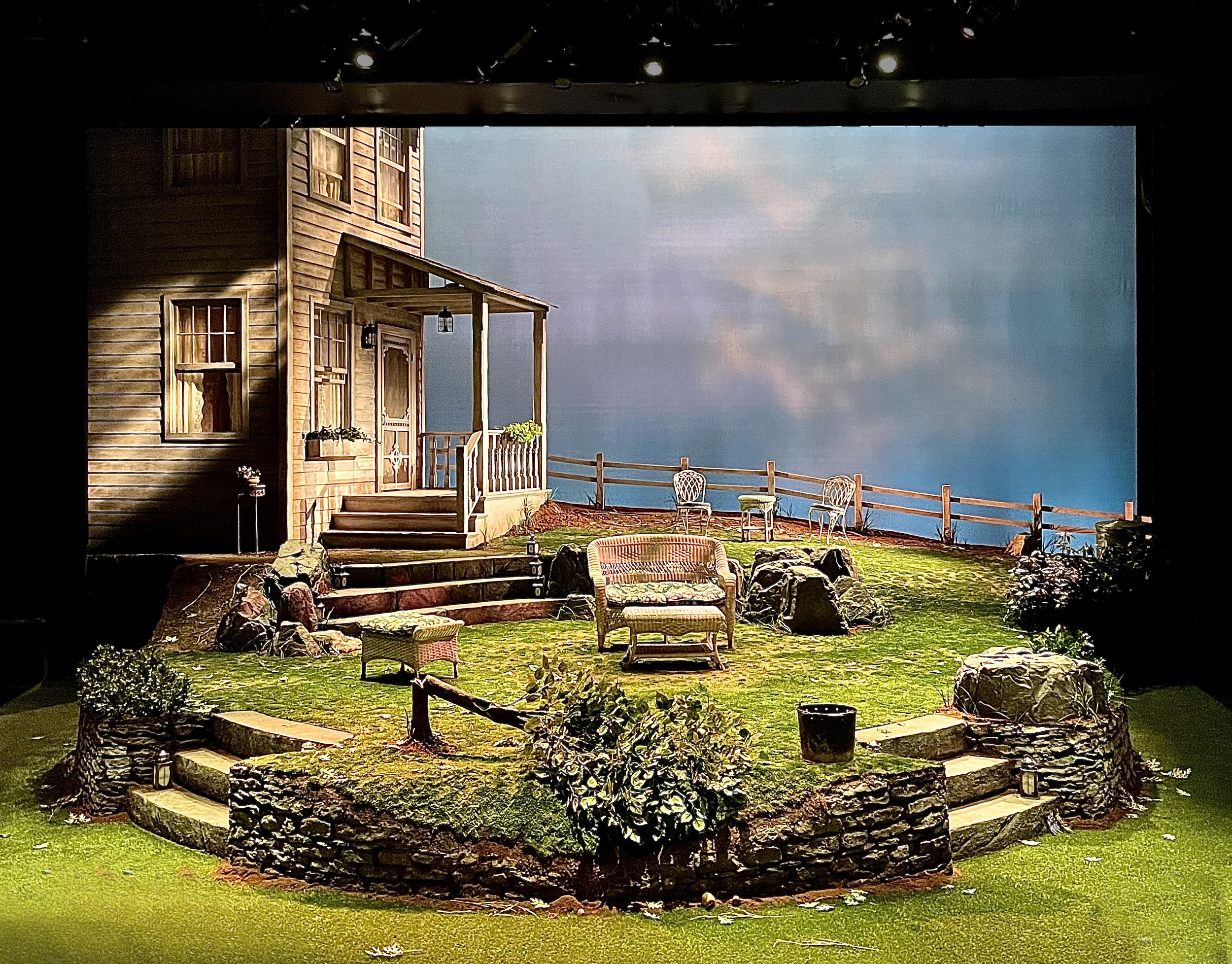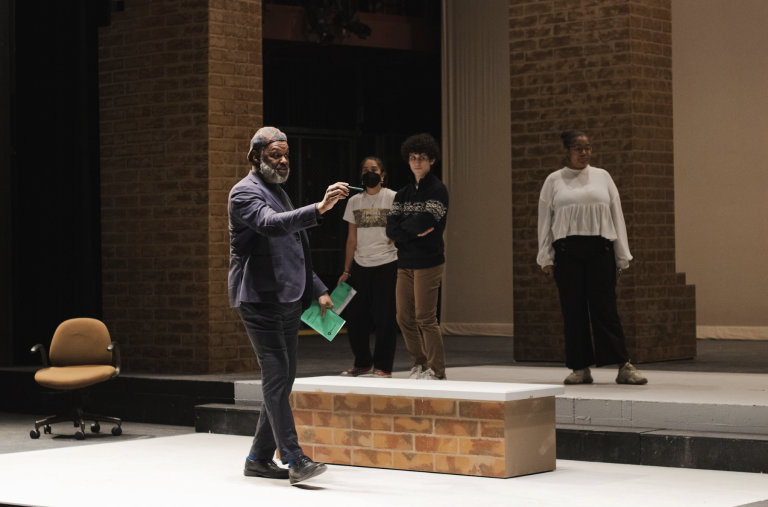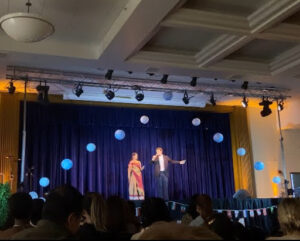By Savannah Brooks ’26
Managing Editor
On April 11, Hartford Stage began previews of its fifth and penultimate show of its 59th season, “All My Sons” by Arthur Miller. “All My Sons,” set in post-World War II Ohio in the backyard of a family home, is one of the prolific playwright’s most well-known and frequently-produced plays. Spoilers ahead.
The play tells the story of the Kellers, a family forever changed by the war. Joe Keller (Michael Gaston) grapples with guilt over deliveries of defective airplane parts from his factory that he authorized, leading to the deaths of 21 pilots (as well as the subsequent wrongful imprisonment of his neighbor and employee, Steve Deever). Kate Keller (Academy Award nominee Marsha Mason) denies the death of their son, Larry, who went missing three years prior while serving. Optimist Chris Keller (Ben Katz), their other son, seeks to marry Larry’s former girlfriend and daughter of Steve Deever, Ann (Fiona Robberson), while brother of Ann George (Reece Dos Santos) seeks to bring her away from the Kellers. Neighbors make brief appearances; next-door couple Sue (Yadira Correa) and Dr. Jim Bayliss (Trinity’s own professor of theater and dance Godfrey Simmons, Jr.) warn the family (and Ann) about their growing discord and Lydia (Caitlin Zoz) and Frank Lubey (Dan Whelton) provide momentary comedic relief to the mostly-somber play. Young Bert (Malachy Glanovsky) even makes a few appearances to report to Joe about neighborhood delinquents.
With “All My Sons,” Miller interrogates American economics, specifically questioning the ethics of wartime capitalism. The play asks the audience what it means for war to be a business venture for many at home while the youth of some unlucky generation get sent off to die. However, it expands too far beyond its backyard at times; Bert, a notable character today considering recent backlash against child actors, appears for perhaps a combined five minutes with minimal payoff (he does not appear at all in the second act). Additionally, much of the action occurs through hearsay, with the climax of the play coming when Chris reads aloud a letter written by his brother. However, Miller’s story finds its core in the character of Kate, a contemplative study in motherhood, child loss, grief and guilt.
Directed by Melia Bensussen, this production did not stray far from the page (although the Miller estate is not too keen to see anyone take any chances — a 2019 Broadway revival that planned to cast the Deevers as Black and the Kellers as white was forced to change directions after the estate nixed the idea). A sprawling and intensely detailed vision of the Keller’s backyard created by scenic designer Riw Rakkulchon (a Hartford Stage veteran — I note his brilliant set design in my review of last season’s “The Mousetrap”) immerses the audience in a distinctly Midwestern landscape.
The cast of characters gave varying performances, with Robberson and her on-stage brother, Dos Santos, who makes a short yet meaningful appearance late in the play, providing the most emotionally evocative performances of the ensemble. Robberson in particular demonstrated a deep understanding of Ann’s physicality, skillfully flitting between drastically different emotional states as her entire life unfolds before her. Mason, Gaston and Katz do not quite go the distance as the Kellers — emotional climaxes are left nearly untouched, especially in the action-filled second act.
Ultimately, Hartford Stage presents a classic as it has been watched for decades. The audience revels in Miller’s dense, quick language, but laughs too often and is far too confused about the emotional meter of the piece. You will probably leave with both of your eyes dry, but expect to still be surprised by Miller’s skillfully entwined plot twists.
“All My Sons” at Hartford Stage runs until May 5, with tickets sold online and at the box office. Use promo code “COLLEGE” as a college student to buy any ticket for $20.







As a review, Ms Brooks follows the basic formula–recite the plot, name each actors and qualify them according the reviewer’s opinions–all this is fine. Could you have gone further? Thought about the zeitgeist of now versus the 1950s? There was more interesting material here, than this reviewer was able to discuss–too bad. We’re not just reading you for your opinions, ma’am.